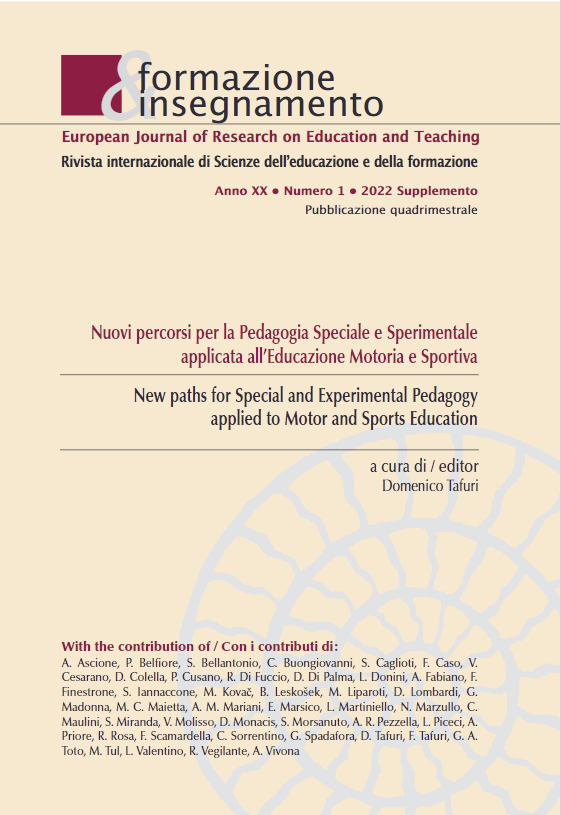Didactic approach in movement disorders
DOI:
https://doi.org/10.7346/-feis-XX-01-22_12Keywords:
Movement, Specific Learning Disorders, Workshops, Corporeity, SchoolAbstract
In recent years, scientific research has placed a great deal of attention on the observation of children with developmental coordination disorder (DCD). The severe difficulty in motor coordination that such children exhibit also particularly interferes with school performance and activities of daily living. In fact, symptoms of DCD occur already in the initial phase of development, but it is often not identified until school age, leaving out good opportunities for early intervention. These children have previously been described with a variety of terms such as developmental dyspraxia, minimal brain dysfunction, perceptual-motor dysfunction, physical embarrassment, or, more commonly, clumsy baby syndrome. The purpose of this work, in the light of the scientific framework illustrated, is to educate children with this syndrome to a motor creed that is able to improve their movement and consequently their ability to manage the body.
Downloads
Published
How to Cite
Issue
Section
License
Copyright (c) 2022 Pensa MultiMedia

This work is licensed under a Creative Commons Attribution 4.0 International License.
Formazione & insegnamento is distributed under Attribution 4.0 International (CC BY 4.0).
For further details, please refer to our Repository & Archiving Policy, as well as our Copyright & Licensing Terms.





